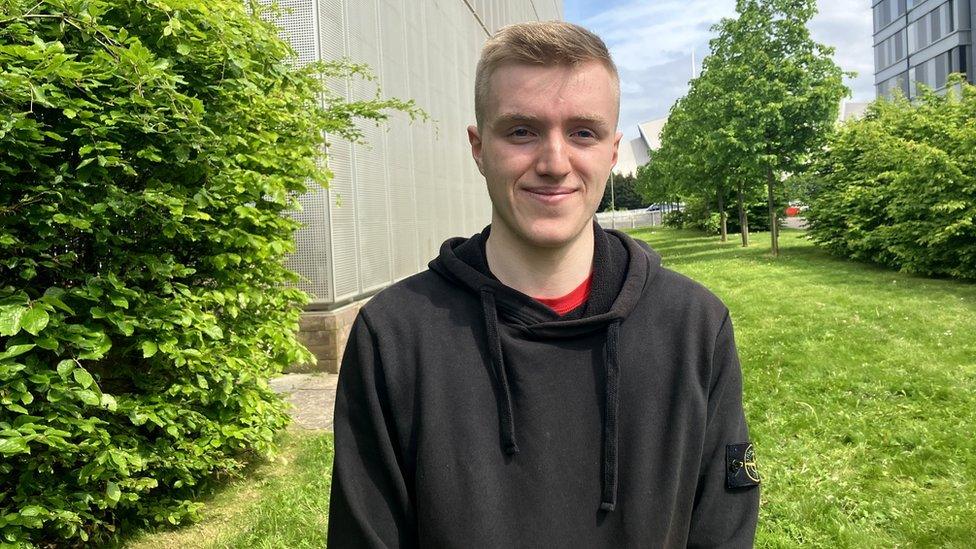Children's hearing changes 'could threaten victim's rights'
- Published
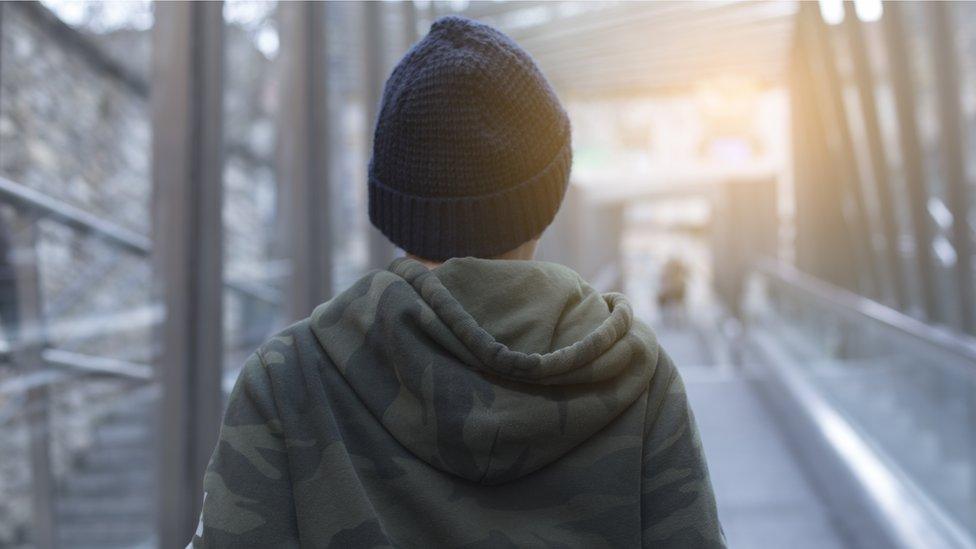
Proposed changes to who is dealt with by the children's hearing system in Scotland may lead to an "imbalance of rights", according to Victim Support.
A bill being considered at Holyrood would change the definition of "child" to include 16 and 17-year-olds.
The Scottish government said it could cut reoffending by keeping more young people out of the adult justice system.
But concerns have been raised that the focus is on supporting offenders and disregards victims.
The Children (Care and Justice) (Scotland) Bill is currently at stage two in the Scottish Parliament.
It proposes changing the definition of "child" in the children's hearings system from someone under 16 to someone under 18.
The Lord Advocate and Procurator Fiscal will retain the discretion to begin criminal proceedings and to prosecute children in court, where appropriate.
Victims 'should be the focus'
One mother told BBC Scotland News she felt the system did not offer her son enough support, after he was sexually abused by another child who was dealt with through the children's hearing process.
She said: "I found out through someone else that my son had been sexually abused, possibly raped.
"I spoke to my son, who was nine at the time. He was raped, sexually abused, by a slightly older child.
"So when I had as much information as I could, I phoned Police Scotland and reported a crime and then it was awful. It was quite horrific after that."
The case was referred to the children's hearing system. The mother said because the offender was entitled to privacy, they found it hard to get information as the case progressed.
There were no restrictions on the children involved, and others connected to them, and nothing put in place to prevent them from still seeing each other.
"I was always chasing information," she said. "When we should have been the main focus."
"My son didn't go to school until I got him into another school after about three months. He didn't get to see his friends. He didn't get to play football. He didn't get to go outside.
"It was just awful. It should never have been like that."
As well as moving schools, she and her son also then moved to a different town.
She said she believes that if a similar offence had been dealt with in the adult justice system there would be clearer boundaries.
"I've always said that if this was adults, this would not be happening," she added. "There would be so much more restrictions put in place on the perpetrator."
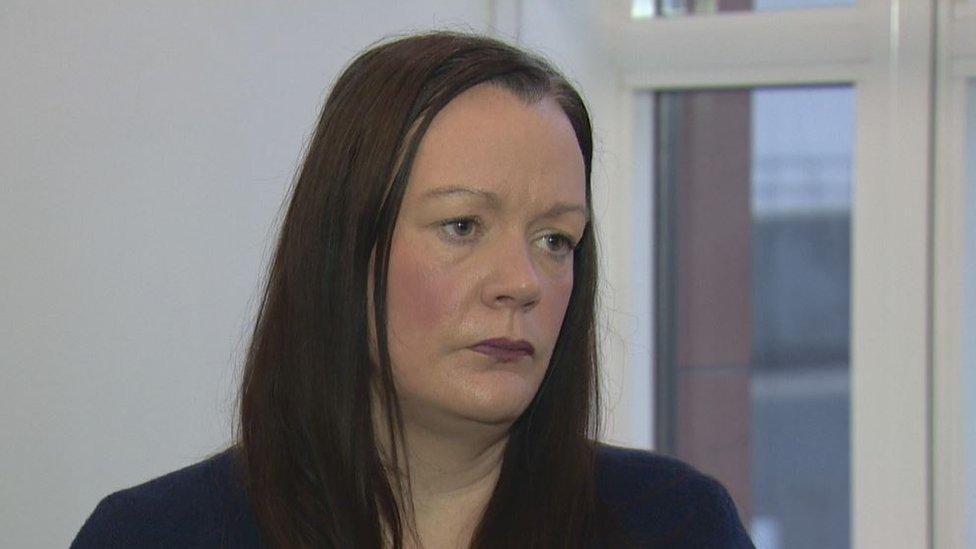
Kate Wallace from Victim Support Scotland said it was important the rights of victims were protected
This case involved younger children but Victim Support said it highlighted existing problems with how offences committed by young people are dealt with.
The charity said it wanted the new bill to ensure victims' voices were taken into account equally.
Kate Wallace, chief executive of Victim Support Scotland, said: "We are concerned that there is an imbalance of rights.
"Victims are entitled to certain things and we see it as a problem at the moment that those rights are not balanced when it is a child who has harmed someone else.
"Their right to privacy is seen as being paramount and that is why victims and their families are not being given information about the case."
She added: "This is already an existing problem that we have been raising for quite some time.
"As it stands at the moment this bill does not address the challenges that already exist and our concern is that it is going to make those worse as it will apply to a wider group of children, and that will have an impact on more victims."
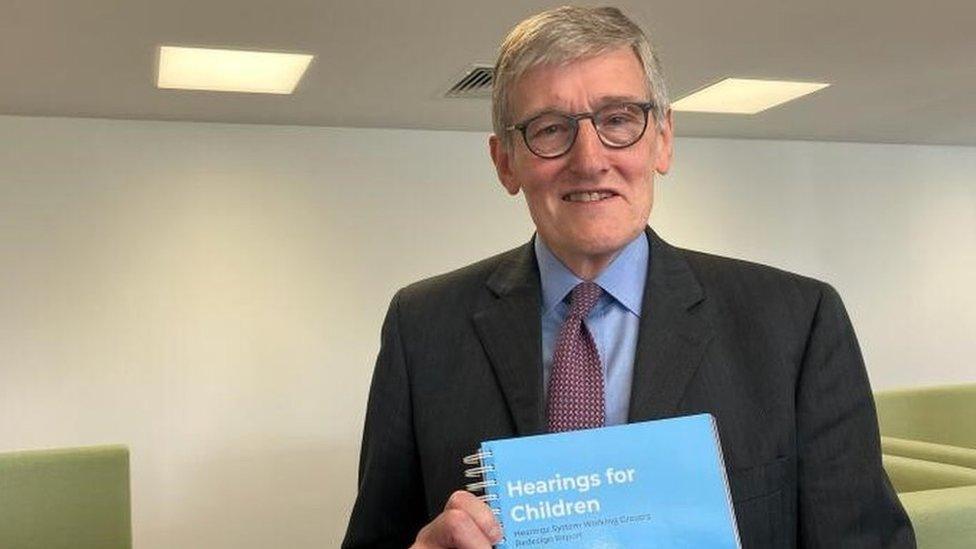
Sheriff David Mackie led a working group looking at reforms to the children's hearing system
Earlier this year a radical shake-up of the children's hearings system was recommended to the Scottish government.
The proposals, developed with input from young people, included replacing the traditional volunteer model with paid panel members.
Retired sheriff David Mackie, who led the working group, said the system aimed to reduce the risk of reoffending by trying to keep young people out of the adult justice system where possible.
He told BBC Scotland News: "All that we are doing is extending to 16 and 17 year olds, who are children by any definition of the word, what we've known since the early 1960s, when the Kilbrandon report made recommendations for the formation of our children's hearing system.
"It said that children who become involved in conflict with the law and become involved in offending behaviour can more profitably be dealt with by addressing their needs and not their deeds."
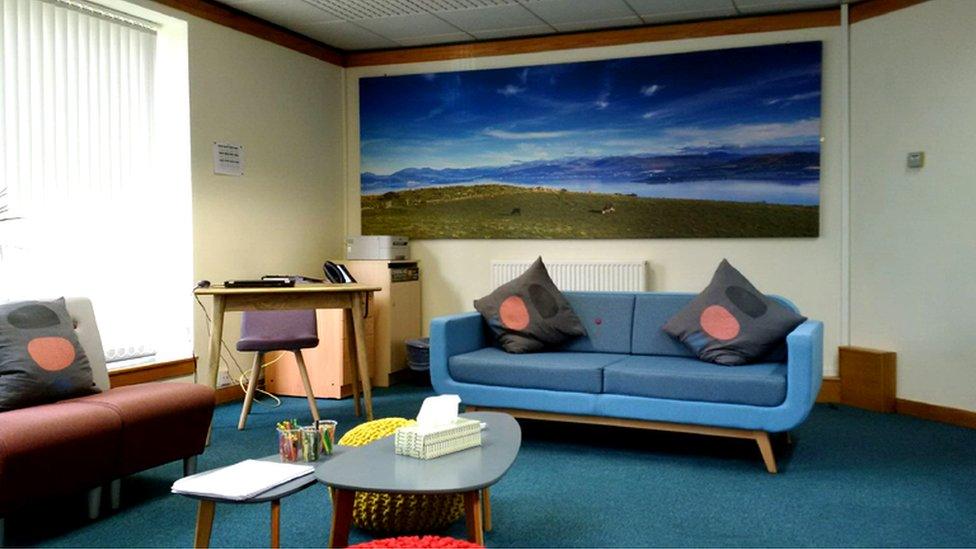
A new children's hearing room in Greenock
A Scottish government spokeswoman said action to improve the experiences of child victims and their families was a priority in the bill currently going through Holyrood, external.
She said ministers were working with stakeholders, including Victims Support Scotland, on measures to improve victim support and information sharing arrangements ahead of the next stage of the bill.
The spokeswoman added: "This bill aims to end the placement of under 18s in Young Offenders Institutions, with secure accommodation being the normal place of detention instead.
"The decision on whether to detain a child remains with the independent judiciary.
"On turning 18, young people who have a significant part of their sentence still to serve will be transferred to prison."
The decision on whether or not to bring criminal proceedings would continue to be made by independent prosecutors under the guidance of the Lord Advocate, she added.
Some over-sixteens are already dealt with by the children's hearing system.
Related topics
- Published25 May 2023
